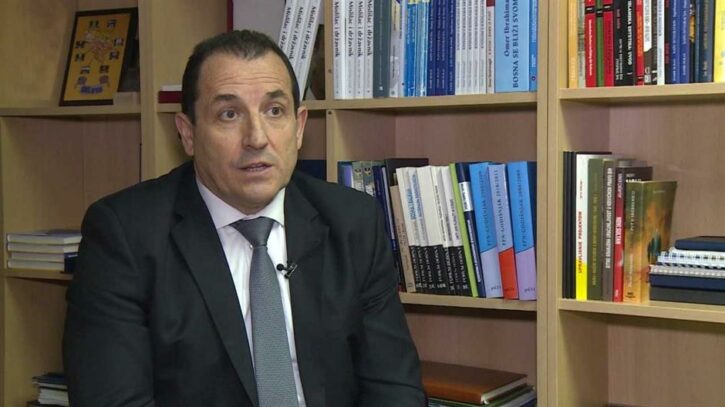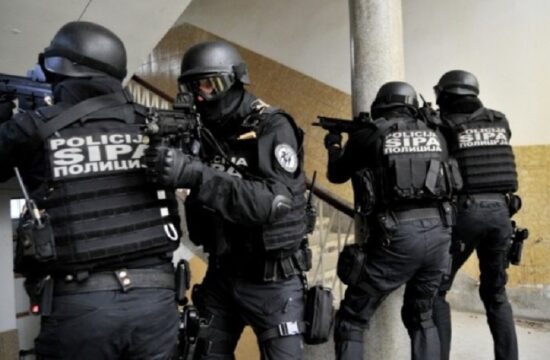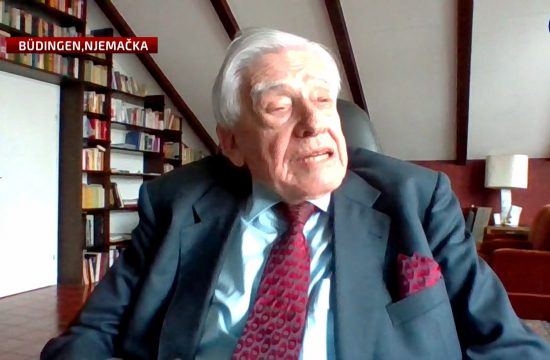
Former Bosnian Defence Minister Selmo Cikotic said, after announcements that NATO member states could activate the Membership Activation Plan (MAP) for Bosnia, that it could be a new chapter for Bosnia’s economy, resources, military, security and the rule of law but also a positive impulse for the region.
“The NATO MAP is the final mechanism through which states are tested in five main categories: Political and economic matters, military and defence matters, matters of resources, security matters and legal matters,” Cikotic said. “These five fields are instruments through which states are tested and evaluated annually, for their full membership.”
He said that NATO has no intention of importing problems into Bosnia, but they want to get a new credible partner.
On Monday, NATO Secretary General Jens Stoltenberg said, it is on Bosnia and Herzegovina's authorities to decide if they will seize the opportunity that the NATO foreign ministers might offer them on Wednesday, when NATO foreign ministers are set to meet on Wednesday to discuss a series of issues including the Western Balkans.
“I expect ministers to agree that we will be ready to accept the first annual national programme of Bosnia, then it is on Bosnia and Herzegovina to decide whether they'll use this opportunity,” said NATO's senior official.
Cikotic noted that Bosnia is now getting a chance to initiate its annual national programme and to use the experiences of states who spent five or more years before becoming member states, to learn from their mistakes.
Asked to comment on Croatia’s announcements to block Bosnia’s NATO accession process, Cikotic said hypothetically, Croatia can do that, but that it’s doubtful.
“All NATO decisions are made through a consensus of all NATO members. The previous experiences say that this alliance did not allow itself to become an instrument for quarrels between the members,” Cikotic told N1.
Earlier last week, Croatian media reported that Miroslav Tudjman spoke with NATO Secretary General Jens Stoltenberg and the main topics of their discussion were the equality of peoples in Bosnia and changes to Bosnia’s election law. Croatian officials have been very active after the October general election in Bosnia in speaking to western officials about the rights of Bosnian Croats living in the other Bosnian entity – the Federation of Bosnia and Herzegovina (FBiH).
The issues discussed by Tudjman and Stoltenberg must be solved for Bosnia’s sake, not because someone is asking it to do so, Cikotic said for N1, but added that solutions must be sought according to the logic of things, not someone’s wishes.
But, he stressed that Bosnia’s NATO accession must be the result of Bosnia’s internal political consensus.
The former Defence Minister noted that ever since Bosnia adopted the State Defence Policy in 2001 to date, the Presidency adopted a number of documents undoubtedly proving Bosnia’s commitment to NATO membership. In his opinion, there is no better solution for Bosnia than joining the Alliance.
Speaking about the experiences of the newest NATO member states, Cikotic said that after they joined this military alliance, they experienced a surge in direct foreign and domestic investments.
“Bosnia is facing a lack of domestic investments and people won’t start investing until the country sends them a strong positive signal. It is of regional importance that as many countries join NATO because it means stability and prosperity for the region”” Cikotic added.
The NATO membership does not exclude cooperation with Russia as well as some Islamic and Asian countries, he concluded.





